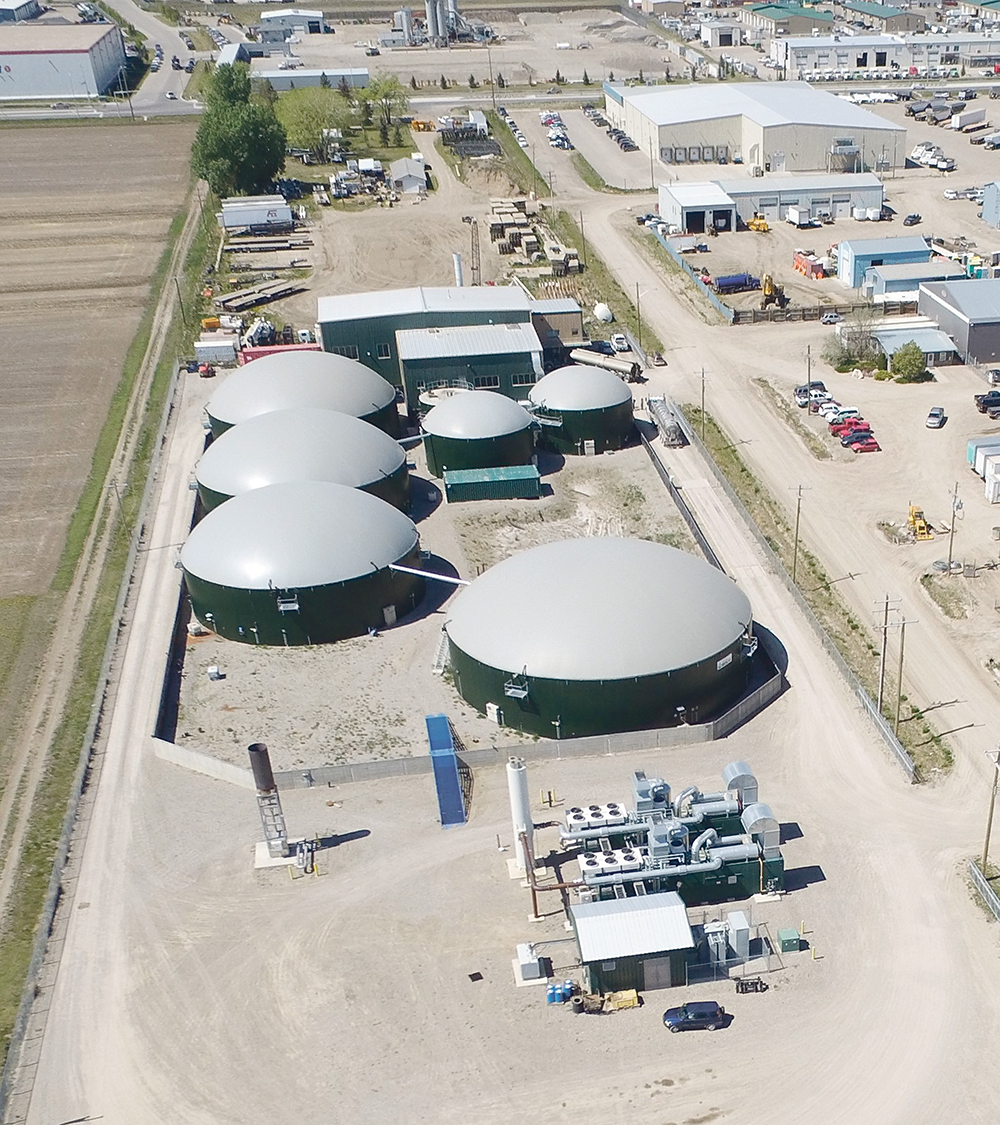The Lethbridge facility had been generating electricity from manure, dead stock and food processing waste
The green biodigesting domes on the east side of Lethbridge have been producing electricity from biological waste materials since 2013. Now they are poised to produce renewable natural gas instead.
Lethbridge Biogas is planning a $7 million expansion that will allow it to produce natural gas that will enter ATCO’s natural gas grid and be supplied to FortisBC under a long-term agreement.
Though the facility will continue to produce electricity for its own needs, its focus will shift to renewable natural gas production once new equipment is installed in about one year.
Read Also

Farming Smarter receives financial boost from Alberta government for potato research
Farming Smarter near Lethbridge got a boost to its research equipment, thanks to the Alberta government’s increase in funding for research associations.
Stefan Michalski, director of operations for Lethbridge Biogas, said conversion to natural gas production is expected to be a more stable business model.
“Electricity, in Alberta, is a very difficult market so (the expansion) does a lot of things for us,” he said.
“Technically, it’s relatively simple to export power to the grid, but commercially, you’re in a free market where the prices are determined by supply and demand, which is fine, but the fact that you’re delivering a green product is not really recognized. You don’t get anything for that. The prices go up and down.”
Michalski said unprecedented low electricity prices in 2016-17 were followed by a slight recovery but then the pandemic caused another plunge.
“You are subject to this up and down all the time and it is difficult, really, to build a sustainable business on that.”
Lethbridge Biogas uses 350 to 400 tonnes of biological waste material each day, on average. By regulation, half of that has to be livestock manure. The rest is biological waste from food processing facilities.
The facility is also licensed by the Canadian Food Inspection Agency to accept and process dead stock and animal byproducts. That is a small but growing portion of the material it accepts, Michalski said.
The switch from electrical to natural gas production is expected to increase processing capacity, he added, and potentially introduce more options on the feedstock side.
“We (will) have now more processing capacity on site because at the moment we are kind of at the limit of what we can do with feedstock because our engines are operating most of the time at capacity.”
The change to natural gas production will position Lethbridge Biogas as the first full-scale commercial renewable natural gas application in the province.
The deal with FortisBC to accept the natural gas allows that utility to work toward targets of reducing greenhouse gas emissions by 30 percent by 2030.
Michalski said there is recognition for renewable natural gas in that sector of the energy market, as compared to the electrical side. Many jurisdictions calculate the carbon intensity of a product when considering GHG reduction and biogas has a desirable low number.
Lethbridge County reeve Lorne Hickey, in a news release, embraced the announcement.
“This year has certainly been challenging for many businesses, so we are encouraged to see Lethbridge Biogas going ahead with this expansion that will add value to our economy while continuing their commitment to sustainable, renewable energy,” said Hickey.


















